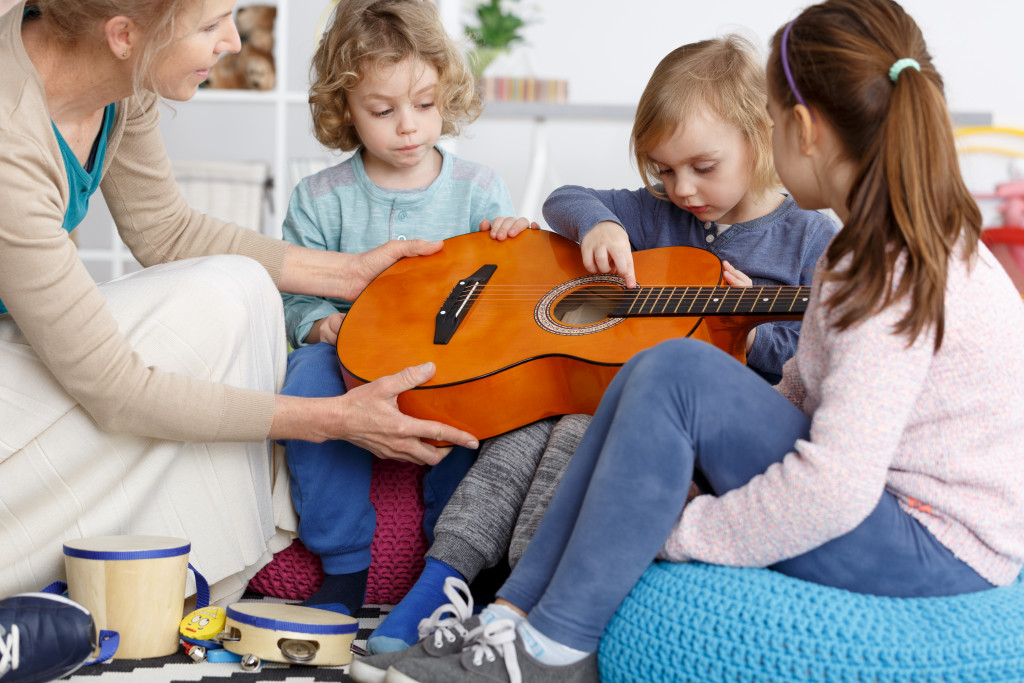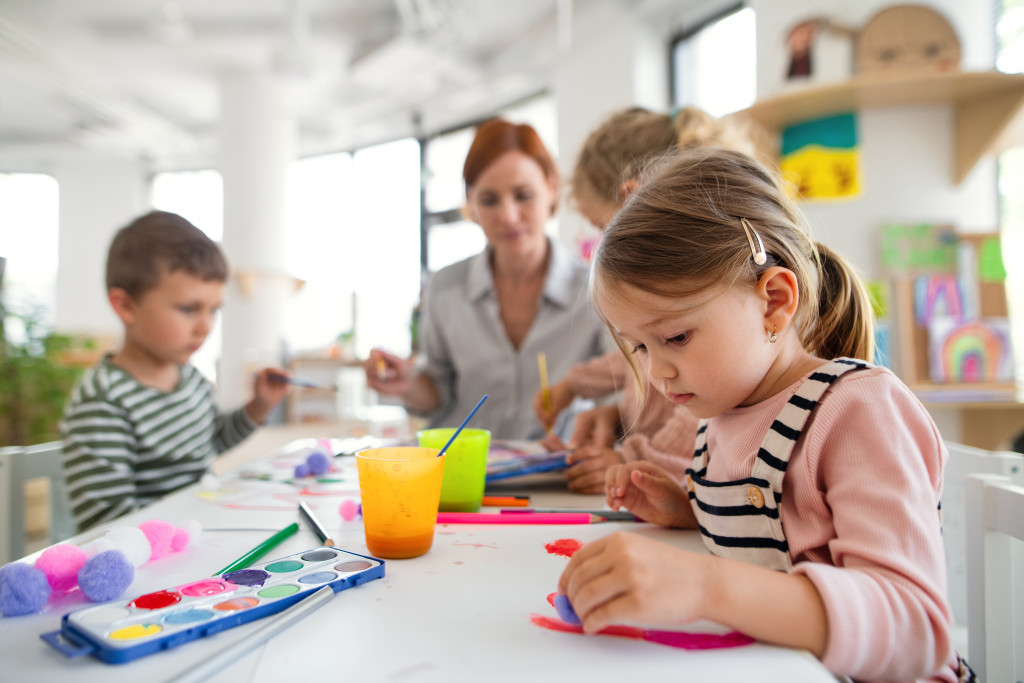- Child development is an integral part of a child’s success, and unfortunately, many students are not reaching their full potential due to poor development.
- Youth sports programs can help develop physical activity, teamwork, and goal-setting skills, which can improve cognitive and emotional development.
- Music exploration helps children express themselves creatively while building relationships with others and developing cognitive skills.
- Summer camps provide a wide range of activities that help children gain independence, learn survival skills and build relationships with peers.
Child development has become an increasingly important topic for educators, parents, and the public. Children must develop strong cognitive and physical skills to ensure a successful future. According to recent studies, approximately one-third of all school-aged children in the United States are not meeting their full potential due to poor child development. This means that a large number of students are not able to reach their highest levels of learning and achievement.
Child development involves various aspects, including cognitive, language, social, and emotional development. These areas must be addressed for a child to reach their full potential. The school is a vital space for fostering and improving such action. But, there are ways beyond the classroom to help children reach their developmental goals. Here are a few of them.
Youth Sports Program

Youth sports offer an invaluable opportunity for children to engage in physical activity while building relationships with their peers and adults. Participation in youth sports encourages team-building and goal-setting, which can help students grow stronger cognitively and emotionally. Additionally, research has found that youth sports participation is linked to higher levels of academic performance.
Youth sports also offer several benefits to students’ social development. Teamwork and collaboration become second nature when students compete on the same team. Playing with others allows children to interact with their peers outside the classroom, fostering meaningful relationships. In addition, playing on a sports team builds leadership skills, self-confidence, and resilience, which are valuable life skills that can be used beyond school. Here are a few sports programs to consider:
Baseball camp
Baseball can be a fun activity for children ages 8-16. Most baseball camp programs involve drills and exercises to help players improve their throwing, catching, and batting skills. Baseball camps also incorporate educational components about the rules and regulations of the game.
Youth Soccer Program
Soccer is an excellent way for older students (ages 13-18) to stay active while developing essential social skills. The rules of soccer can be confusing at first, so having an experienced coach can help players learn quickly.
Cheerleading Program
Cheerleading is an excellent way for younger students (ages 6-12) to stay active and have fun. Cheerleaders learn to support each other as a team, build confidence, and set goals. Plus, the positive environment of cheerleading can help children develop strong social skills.
Basketball camp
Basketball camps are an excellent way for students of all ages to get active and have fun. Most basketball camp programs involve drills and exercises to help players improve their footwork, shooting, and dribbling skills. It’s also a great way to learn the game’s rules and practice teamwork.
Music Exploration

Music exploration can help children of all ages learn to express themselves creatively. Playing a musical instrument, singing, or even composing music with friends allows students to explore their emotions and build relationships with others. Music instruction also helps develop cognitive skills like problem-solving and critical thinking. Fortunately, there are many programs to help children explore music, including these:
Voice lessons
Voice lessons are an excellent way for students to explore their musical talents. Voice lessons can help students develop good vocal techniques and learn how to express themselves through singing better. Additionally, voice lessons can help children build confidence and learn to take constructive criticism from their instructor.
Guitar instruction
Learning guitar is an excellent way for kids of all ages to explore music and gain valuable skills like patience and focus. Guitar instruction teaches children the basics of playing guitar as well as various styles of music. It also encourages creativity, problem-solving, and critical thinking skills.
Piano classes
Piano lessons can be an essential part of a child’s musical education. Piano classes help students learn the basics of playing and reading music and the music theory behind it. Those interested in classical music should consider taking piano classes as they provide an excellent foundation for understanding the complexities of this genre.
Summer Camps
Summer camps are an excellent way for students to stay active and explore new interests. Summer camps provide a wide range of sports, music, art, and more activities. Participating in summer camp activities helps children build relationships with their peers, learn practical problem-solving skills, and gain independence.
Summer camp will also teach survival skills, such as essential first-aid, compass use, and fire building. These skills can help children feel more confident and independent in the outdoors. Additionally, research shows that spending time in nature is linked to better physical and mental health, so children need fresh air during breaks from school.
Final Thoughts
Children must develop strong cognitive and physical skills to ensure a successful future. Beyond the classroom, there are several activities students can partake in to help them reach their developmental goals. Youth sports programs, music exploration, and summer camps are just a few of these activities. Investing in these opportunities can provide children with invaluable experiences that will help them become more successful adults.

